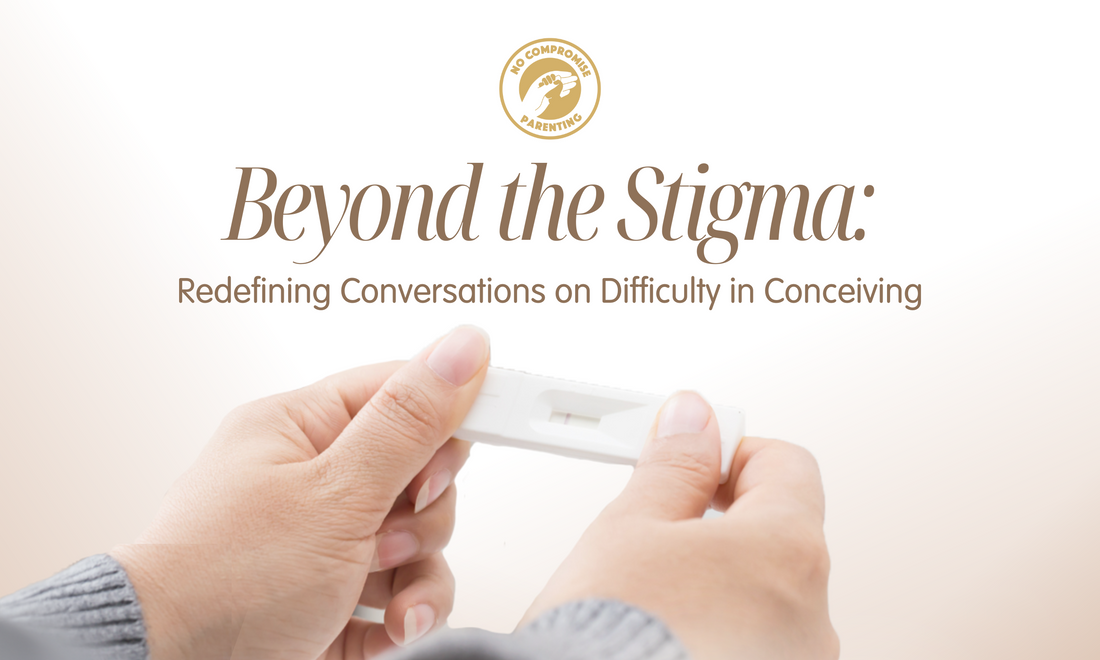Infertility Awareness Week provides an opportunity to highlight a deeply personal and complex issue that affects millions of couples worldwide. It's a time to discuss the difficulties of conceiving, but more importantly, to redefine these conversations, promoting understanding, reducing stigma, and increasing support for those affected.
The Reality of Infertility
According to the World Health Organization (2023), around 1 in 6 people worldwide experience infertility. The condition affects both men and women and the causes are varied, including ovulatory disorders, sperm problems, age, and lifestyle factors, among others.
Despite its prevalence, infertility often remains a silent struggle. Couples grappling with infertility may experience a range of emotions including frustration, guilt, and isolation. The pressure can be exacerbated by well-meaning but often insensitive questions from family and friends about when they plan to have children.
Changing How We Talk About Infertility
To foster a more supportive environment, it is crucial to change how we talk about infertility:
-
Educate to Eliminate Stigma: Education plays a pivotal role in breaking down the myths and misconceptions surrounding infertility. Sharing accurate information about the medical and emotional aspects of infertility can help others understand the complexity of the issue. It’s about recognizing infertility as a medical condition, not a personal failing.
-
Encourage Open Dialogue: Encouraging those affected by infertility to share their stories can bring more light to the subject and provide comfort to others in similar situations. This includes discussions in various forums – from social media platforms to community gatherings, creating spaces where experiences can be shared without judgment.
-
Find the Right Support: Communities such as Fertility Support Group Philippines and IVF Philippines provide invaluable support, from sharing personal experiences to discussing treatment options. Consulting with a fertility specialist or OB-GYN can also offer tailored options to conceive, reflecting the latest advancements in reproductive health. Numerous clinics and hospitals across the country specialize in these services, providing both counseling and medical treatments to address the emotional and physical aspects of infertility.
By reaching out, you remind yourself that you are not alone in this journey, with expert guidance and compassionate support available every step of the way. For more details on support groups, check the full list and descriptions here.
-
Promote Inclusivity: Infertility affects people from all walks of life—regardless of race, sexuality, or economic status. Conversations should reflect this diversity, acknowledging the unique challenges faced by different groups.
-
Support Mental Health: Addressing the psychological impact of infertility is as important as treating the physical symptoms. Mental health support, whether through counseling, support groups, or other resources, should be readily accessible to those undergoing fertility treatments. Public health campaigns and insurance companies should recognize and support mental health equally with physical health.
-
Advocate for Policy Change: Advocacy for better policies is crucial. This includes insurance coverage for fertility treatments, protection against discrimination, and more substantial support in the workplace for those undergoing treatments. These changes can relieve some of the financial and emotional burdens associated with infertility.
- Paths to Success: Advances in medical technology and community support are making it easier to overcome infertility. We celebrate the successes in fertility treatments that bring many closer to parenthood. Together, we share stories of hope and resilience, highlighting the collective strength of those affected by infertility.
Infertility Awareness Week is more than just a campaign; it’s a call to change the discourse surrounding infertility, making it more inclusive, educated, and supportive. By transforming how we talk about infertility, we can lift the veil of isolation that many couples face, fostering a community that embraces all paths to parenthood. Let this week be a stepping stone towards a society where no one has to endure the pain of infertility alone.
Related Articles:
Navigating New Motherhood: Different Support Systems for First-Time Moms
Baby Blues vs Postpartum Depression
No Compromise Mom Diaries
